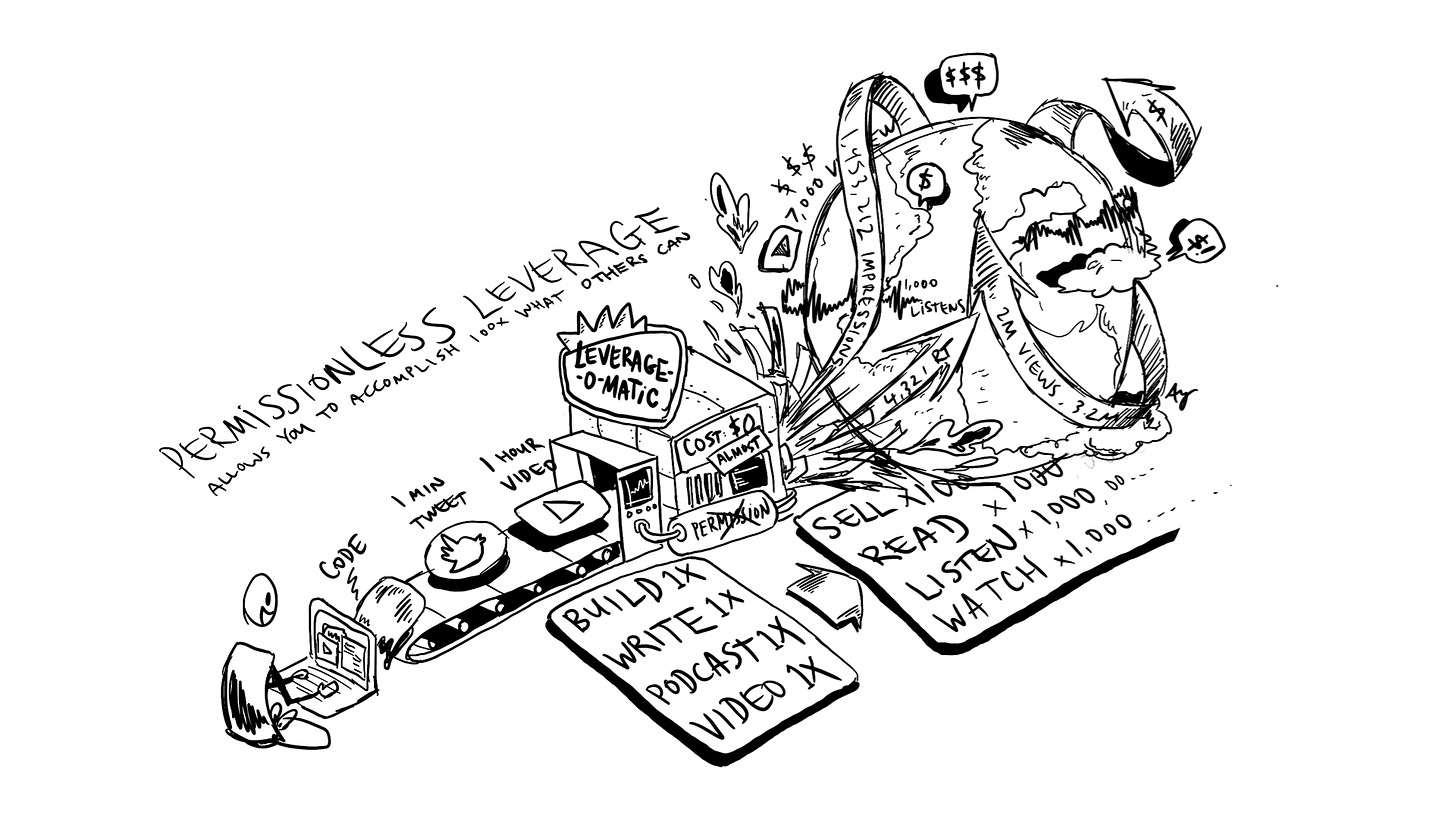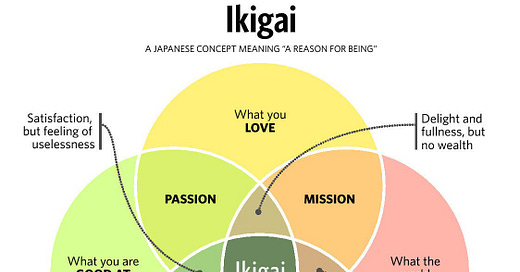Newsletter #47: on luck and ikigai
16 minutes reading time. Thoughts on startups, growth, and technology 🚀
Welcome to another edition of the Struggle.
The Struggle is a weekly newsletter where I share my thoughts and learnings from running a fast-growing startup in Southeast Asia.
As today I am turning 30, I wanted to take a moment to reflect on what I have learned in my twenties and what advice I would like to give to younger folks.
While I can’t say that I have figured it all out, I am in a job that challenges me, earning more money than I reasonably need; given my lifestyle, I have very few student loans even though I obtained both a Bachelors's and a Masters's degree abroad.
People say that you need to spend your twenties figuring out what you want to do in life. The Japanese have a great concept to describe that, the intersection of what you love, what you’re good at, and what the world needs - Ikigai.
Ikigai
During the past 10 years, I focused on discovering what I love doing as once you know what you love; the rest is relatively easy. When you are enjoying your job, it does not feel like work. You do not mind waking up early, staying until late, or even working on holidays. Work feels like play.
But discovering that it was not easy. Growing up in Bulgaria, I was taught that having a secure job must be my priority. When I graduated from primary school, the common wisdom was to enroll in a high school that brings a practical skill that will be immediately embraced by the labor market.
As an inheritance from the soviet union, a few schools taught such skills alongside all regular subjects at the time. So I signed up for a high school profiled in tourism and hospitality, knowing that such a choice will equip me with a “profession” very early in life and hopefully enable me to travel the world.
That choice led to seven years of hospitality-related experience, where I tried everything from working as a waiter, chef, housekeeping, and all the way to my first position as a manager.
While I did not terribly enjoy any of the above-mentioned roles, I was having a stable income, traveled for work across Europe and Asia, learned how to communicate with people across cultures, and how to manage a highly operational and stressful environment.
Although I suspected that the hospitality industry is not what I really want to do, each hospitality related role brought learnings and soft skills.
Later at uni, I signed up for all possible volunteer organizations, participated in all startup competitions I heard of and opened my first business throwing parties for international students.
The more new things I tried, the more clearly I realized what I like doing. Moreover, the more things I tried, the more opportunities came my way, creating a feeling of luck.
The four types of luck
Sometime back, I read an article by Marc Andreesen called “Luck and the Entrepreneur, Part 1: The four kinds of luck.”
According to the article, there are four kinds of luck:
Blind luck - completely accidental. It is pure blind luck that comes with no effort on our part.
Motion - A certain level of action “stirs up the pot,” brings in random ideas that will collide and stick together in fresh combinations, lets chance operate. As Marc wrote:
“I have never heard of anyone stumbling on something sitting down.”
Recognizing good fortune - Louis Pasteur characterized it for all time when he said, “Chance favors the prepared mind.” Such luck involves a special receptivity and intuitive grasp of significance unique to one particular person.
Directed motion
“Directed motion favors the individualized action.
“This is the fourth element in good luck — an active, but unintentional, subtle individualized prompting of it.”
“Direct motion is the kind of luck that develops during a probing action which has a distinctive personal flavor.”
“The English Prime Minister, Benjamin Disraeli, summed up the principle underlying the four type of luck when he noted: “We make our fortunes and we call them fate.”
“Type four luck comes to you, unsought, because of who you are and how you behave.”
Marc Andreesen, “Luck and the Entrepreneur, Part 1: The four kinds of luck”
The difference between type 3 and 4 is that “directed motion” enables you to encounter a good fortune, specifically because of the direction you have chosen to move toward. You have a hunch, so you pursue it, and luck appears.
Whereas in type 3, you have reached a point where you can recognize luck, type 4 is about developing particular knowledge, experience, and perspective that guides you towards luck.
In my early twenties, I was doing my best to create luck through motion. I was getting involved in every possible event, even if I did not get compensated. The more I steered the pod; the more opportunities came my way. In time, I started shifting to the “recognizing a good fortune” type of luck, and that’s how I decided to do a 180-degree pivot in my career, drop the hospitality industry and focus on building startups.

I clearly remember attending my first startup competition. The feeling that you can create products out after a relatively short period of time and solve real problems blew my mind.
That’s when I “recognized a good fortune” and decided to focus all my efforts on catching up with the tech sector.
Five years later, the quality of my life has increased considerably. I am working on challenging problems that excite me continuously. To get there, I have surrounded myself with smart and kind people. All that has led to compounding learnings and growth like never before.
But it took me nearly ten years of motion to discover what I love doing, and over time, what I am good at.
I’ve compiled a few lessons I learned in my 20s and want to take this opportunity to share them.
3 things that anyone in their 20s can implement
Seek wealth, not money or status.

We are all guilty of chasing status at times, especially at the beginning of our twenties. I would recommend you avoid that, live a humble life with less than you earn, and invest the rest.
Invest in yourself.
“In my whole life, I have known no wise people (over a broad subject matter area) who did not read all the time - none. Zero. You would be amazed at how much Warren reads - and how much I read. My children laugh at me. They think I am a book with a couple of legs sticking out.”
Charlie Munger
No matter how broke I was at times, I have never refused myself a book. Reading is an investment that provides a guaranteed 100% ROI. If you do not like to read, pick the few books you find enjoyable, read often, build a habit, and gradually transition to more difficult books. The longer you do it, the stronger the habit.
Nowadays, we have access to amazing podcasts, blogs, courses, and books. There has never been a better time to invest in yourself.
Build luck through motion.
In your 20s, the best way to understand yourself better and create luck is to seek as many unique experiences as possible. Volunteer, start companies, take unpaid/paid internships, travel, read, and soon you will start attracting opportunities your way. In my experience, that’s the best way to understand in what circumstances you thrive.
Treat your 20s as a decade of experimentation, invest in yourself, and build good financial habits. That’s the best way to move from one type of luck to the next one in the continuous pursuit of ikigai.





